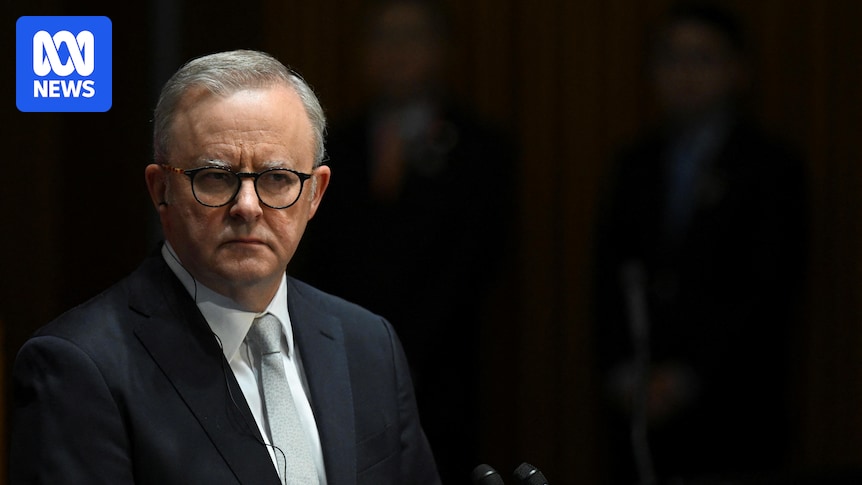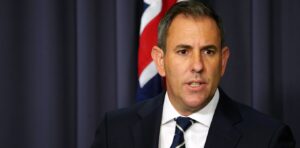
Anthony Albanese has shown no urgency in convening the new parliament, which is set to be opened by Governor-General Sam Mostyn on Tuesday. This delay reflects a common governmental tendency to view the presence of parliamentarians as a potential hindrance to the smooth execution of their agenda. While accountability is a cornerstone of democracy, its practical application often proves challenging for those in power.
In the initial fortnight of this new parliamentary session, the spotlight will shift from the government to the opposition. Liberal leader Sussan Ley has navigated her early days without any major missteps, yet her critics remain vigilant. Angus Taylor, who narrowly lost the leadership contest, continues to harbor ambitions, while right-wing media outlets are poised to capitalize on any errors she might make.
Challenges for Sussan Ley and Coalition Strategy
Sussan Ley must maintain a firm grip on her team’s messaging, particularly concerning foreign and defense policies, to avoid opening the Coalition to criticism. Her recent remarks underscore a desire to steer clear of relentless negativity, emphasizing the need for the Coalition to select its targets judiciously. The inadvertent leak of a Treasury brief urging tax hikes and spending cuts provides fertile ground for criticism, aligning with the Coalition’s economic priorities.
“We should have a joint commitment with them [the US] to the security of Taiwan,” Taylor asserted, drawing significant attention to his stance on international security.
As Ley’s performance remains under scrutiny, Shadow Treasurer Ted O’Brien’s role is equally crucial. Facing a well-prepared Jim Chalmers, O’Brien must quickly establish his footing. His decision to enlist Steven Hamilton, an experienced economist, reflects a strategic move to bolster his economic credibility.
Government’s Legislative Agenda and Economic Reforms
The Albanese government plans to introduce a mix of legislation during this initial parliamentary period. A key campaign promise is the reduction of student debt by 20 percent, alongside early action to secure penalty rates. However, recent revelations of abuse have necessitated urgent legislation to withdraw funding from non-compliant childcare centers.
This parliamentary session precedes the government’s upcoming productivity roundtable from August 19–21, branded by Chalmers as the “economic reform roundtable.” Observers will closely monitor the interplay between the treasurer and the prime minister, as their ambitions for the government’s second term diverge.
Chalmers and Albanese agree that fulfilling election promises should be the baseline, not the pinnacle, of their aspirations. Yet, Chalmers fears Albanese’s ambitions are limited, while Albanese worries about potential overreach by his treasurer.
Negotiations and Political Dynamics
As the government prioritizes delivering on promises, Chalmers has been cautious in negotiating with the Greens over contentious superannuation tax changes. The proposed tax increase on balances exceeding $3 million and the taxation of unrealized capital gains are points of contention. The Greens advocate for a lower threshold of $2 million, adjusted for inflation, suggesting a compromise is likely.
Under new leader Larissa Waters, the Greens face a relatively straightforward test in these negotiations, as Waters aims to be constructive while ensuring government accountability. However, more challenging issues, such as the establishment of a new environmental protection authority, loom on the horizon.
In the Senate, the Greens hold the balance of power on contested legislation, simplifying the government’s legislative path compared to the previous term. This dynamic frustrates other crossbenchers, particularly given Albanese’s arbitrary staff allocation decisions, which have left some, like Pauline Hanson’s One Nation, with inadequate resources.
House of Representatives and Electoral Challenges
In the House of Representatives, the Teal independents maintain a strong presence but wield limited influence. The recent election of Nicolette Boele, who narrowly won the seat of Bradfield, underscores the precariousness of their position. The Liberals have challenged her victory, which was decided by a mere 26 votes, leaving the outcome in the hands of the Court of Disputed Returns.
Possible outcomes include confirmation of Boele’s win, overturning the result in favor of Liberal candidate Gisele Kapterian, or a fresh election. The Liberals risk further destabilizing Ley’s leadership if a new election results in another loss.
As the new parliament convenes, both Anthony Albanese and Sussan Ley face significant challenges. Albanese must balance delivering on campaign promises with managing internal dynamics, while Ley navigates the complexities of opposition leadership amid high expectations and potential pitfalls.





